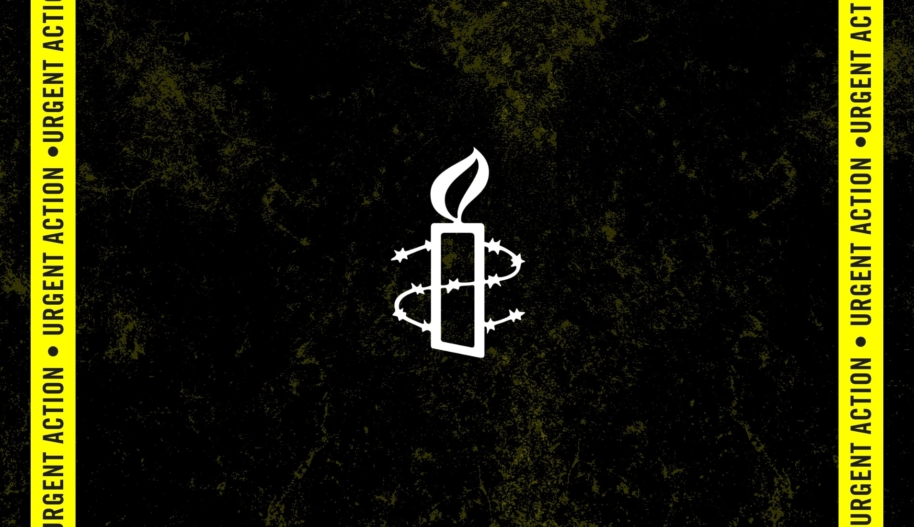On November 27, 2023, UN special rapporteurs on peaceful assembly and association and on extrajudicial, summary or arbitrary executions publicly called on Chilean authorities to “advance the prosecution and sanction of state agents responsible for crimes committed during the 2019-2020 protests”. In a sharp statement, they raised alarm at the lack of criminal prosecution of any police commander and reiterated that “it is the responsibility of the state to hold commanders accountable.” We urge the Prosecutor of the Centre-North Metropolitan Region to, should sufficient evidence exist, formally charge the commanders of Carabineros who could be responsible for these violations.
Here’s what you can do:
In the face of a growing global cry against impunity in Chile, write to the Prosecutor of the Centre-North Metropolitan Region urging him to:
- Formally present charges and start of criminal proceedings against Carabineros’ commanders, if there is sufficient admissible evidence to do so, within the framework of a fair trial and all due process guarantees.
Write to:
Xavier Armendáriz
Prosecutor of the Centre-North Metropolitan Region
Av. Pedro Montt 1606
Santiago Centro,
Chile
Email: xarmendariz@minpublico.cl
Twitter: @FRCentroNorte
Salutation: Dear Mr. Xavier Armendáriz,
And copy:
Ms. Andrea DROPPELMANN VALENZUELA
Deputy Head of Mission & Chargé d’affaires, a.i.
Embassy of the Republic of Chile
50 O’Connor Street, Suite 1413
Ottawa, ON K1P 6L2
Tel: (613) 235-4402
Email: ecanada@minrel.gob.cl
Background
On October 18, 2019, massive protests erupted throughout Chile following an announcement of a rise in the price of public transport in the capital, Santiago. Many Chileans saw this as the final straw after decades of deteriorating access to economic, social and cultural rights.
The largely peaceful protests were heavily repressed. Government measures, never seen since the Pinochet administration, did not put a stop to the protests. Carabineros, Chile’s police force, made constant and inappropriate use of less lethal weapons.
They fired on several occasions potentially lethal ammunition in an unjustified, widespread and indiscriminate manner and in many cases aiming at people’s heads. On multiple occasions, Carabineros used tear gas excessively and unnecessarily, launching this chemical at hospitals, universities, homes and even schools, seriously affecting children and people with disabilities.
Thousands of people were injured, including hundreds of people with serious eye injuries from rubber-coated buckshot and tear gas used indiscriminately and inappropriately. Other human rights violations included dozens of cases of torture, such as sexual torture. Most of the human rights violations documented occurred at the hands of Carabineros.
Impunity
Carabineros commanders, whose responsibility it is to exercise control over their units and ensure that force is used in line with national and international law and standards, failed to prevent these human rights violations from occurring. An emblematic case of such responsibility is that of Gustavo Gatica.
Although Chilean police opened an internal investigation into the events, they concluded that no-one in the institution could be held responsible in the case. In June 2020, Amnesty exposed what could have been an attempt by Carabineros to cover up the involvement of one of its officers, identified as “G-3”. As of September 29, 2023, this officer is under criminal investigation for his role in the shooting of Gustavo. The public prosecutor has filed charges against him, although a trial is still pending, and the chain of command responsibility has yet to be subject of its own trial.
Complicity of security forces
In October 2020, Amnesty International launched the landmark report Eyes on Chile: Police violence and chain of command responsibility during the period of social unrest. The report concluded that there was possible criminal responsibility of at least three commanders of Carabineros for their tacit orders or deliberate omissions in the widespread violation of the right to physical integrity of demonstrators.
Following the report, Amnesty International launched a global campaign demanding that the Attorney General´s Office investigates Carabineros commanders. In its report, Amnesty International also recommended a structural reform of the Carabineros, because of the limitations resulting from its military nature and organic structure, and the need for greater control of the national police by civil authorities, as well as for urgent changes to ensure unreserved adherence to international human rights law.
As of September 2023, impunity for these events have been the norm. According to the National Human Rights Institute (INDH), by the end of 2022, the National Prosecutor’s Office has brought charges in only 127 of the 10,568 complaints of human rights violations during the period of social unrest, resulting in a mere 27 convictions and eight acquittals. To date, no charges have been brought against any of the commanders of Carabineros in charge of the police during the period of social unrest.
In the current investigation being carried out against the Carabineros high command, the Prosecutor’s Office has summoned the Director General of Carabineros to testify six times. However, the highest police authority in charge of the country’s security has yet to provide testimony, causing an obstacle in the investigation.
Please send your appeals until January 23, 2024. If there’s the need for further action after that date, the UA will be duly updated.













